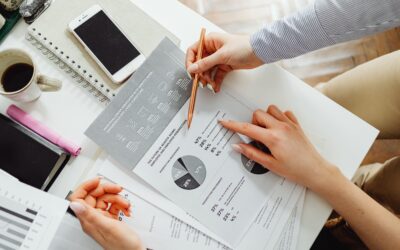Is there such a thing as good debt?
Toby Mathis, Esq. explores this controversial topic and explains how to tell good debt from bad debt.
Updated September 23, 2021
Is there ever such a thing as good debt? This is a controversial topic in personal and company finance. Many will say that you should never have any debt and to strive for zero debt, even if it means eating beans. Others will argue that leverage is everything.
What is the truth about debt?
The truth is that they’re both wrong. In reality, it’s just not that simple. When it comes to good or bad debt, the answer is always: it depends. Not a favorite answer, I know. But let’s explore further.
There’s an old adage that’s important here: a bird in the hand is worth two in the bush. In regards to debt, this can be translated to: what am I giving up vs. what am I receiving?
For example, let’s consider college education in the US. As we all know, not all degrees are worth the same amount. If I’m going to incur $500,000 of student debt, it shouldn’t fund my English degree. If I’m going to be a doctor, sure. One is worth astronomically more than the other. It’s important to consider a longer time horizon when thinking about debt.
What it comes down to is this: If I’m putting myself in debt, am I getting an asset in return?
Some financial gurus will claim that all debt is bad and that your financial freedom depends on zero debt. And maybe this is true in the realm of personal consumables and credit cards. But if I buy a house that pays off the debt in addition to paying me every month, that’s a different kind of debt than that student loan-funded English degree that won’t impact my earning capacity.
It’s important to consider a longer time horizon before deciding whether to incur a debt. It’s also critical to keep in mind that debt is a liability. And the only time you should be using a liability to pay for something is if you’re acquiring something that pays you money on top of paying off the debt.
So, this means that you don’t use debt to buy personal consumables. You don’t use credit cards to buy your clothes, food, etc. This is where I think the financial gurus may be onto something about debt; when people talk about no debt, it’s most relevant to personal credit cards. You can have them for emergencies, but you shouldn’t get used to using them because it leads to disaster.
Another example is buying a car. You don’t want to take out a loan to buy a car. The car is a liability: it costs you money every month in gas, insurance, maintenance, etc. The loan is also a liability: it costs you interest. So, buying a car with a loan is using a liability to pay for a liability. Avoid this if you can.
Instead, buy assets. From my extensive experience working with clients’ taxes, I can tell you that the most successful people buy assets that pay for their liabilities.
Asset vs. Liability
How do I tell the difference between an asset and a liability? Easy. Assets feed you. Liabilities bleed you. If it’s costing you money every month, it’s a liability. If it pays you money, it’s an asset.
Personal Residence
Of course, the next question is: what about my personal residence — is it an asset or a liability? Well, to that I have only one question: does your home cost you money every month or does it pay you every month? If you’re like the vast majority of people out there, it costs you. It’s a liability.
This is what I call the “losing loop.” You’ve bought a home (a liability) with a loan (another liability), so you have two things pulling money out of your pocket every month. Instead, it’s critical that you buy assets to pay for that loan.
For example, I have personal experience with this. When I first moved to Las Vegas from Seattle to run our Las Vegas offices, I needed a $200,000 down payment to buy a house in the neighborhood where I wanted my kids to go to school. Now, this was before the Great Recession, when homes in Las Vegas lost 75% of their value. Instead of doing that, I decided to take that $200,000 down payment and invest it in three rental properties in the Las Vegas area. Then, I rented the house I wanted and paid rent with the cash flow from the three rentals. If I had done what everyone else was doing at the time and leveraged myself into a property I couldn’t afford, I would have been in a much worse situation when the Great Recession hit.
What If I’m Already in Debt?
Again, the answer is a resounding “it depends.” If it were me, my strategy would be to focus on the interest rates and pay back whichever account costs me the most first.
Then again, if you have a significant amount of student debt, you may want to focus on that debt first since you can never bankrupt out of it. The number one cause of bankruptcy in the US is medical bills and, if you’re ever hit with a massive medical bill, you can bankrupt out of other kinds of debt (like personal consumables). Not so with student debt.
With mortgage debt, it’s important to consider the deductions you can take versus the interest. So, especially in the first few years of your mortgage, you’re paying mostly interest and you can deduct that if it exceeds the standard deduction. Thus, you may want to focus on other types of debt that are non-deductible (like personal consumables) first.
These are all factors to consider. There’s no way to know how any given person should get out of debt without actually breaking down the numbers. You want to attack the debt that’s most costly first.
Lower Interest Rates
Many of us have the ability to pay lower interest rates without even realizing it. For instance, I worked with a couple in Seattle who both had IRAs: the wife had about $130,000 and the husband had about $90,000. They also had about $70,000 of credit card debt, on which they were paying an average of 11% interest annually. What they didn’t realize is that they could roll their IRAs into 401(k)s and each borrow up to 50% of their respective value at a much lower interest rate.
If you invest in stocks, you may not be aware that your portfolio can be used as collateral for debt. Having collateral on your debt significantly lowers the interest rate than if there’s no collateral. You could approach your stock broker and ask if they have a security-backed line of credit, then use that to pay off high-interest credit cards.
The Truth About Debt
The truth about debt boils down to this: it’s not all created equal. There are no one-size-fits-all solutions for everyone. You always have to do the math.
If you have debt on an asset that pays for itself and pays you each month, that’s probably good debt. If you’re taking out debt for something that will be much more valuable in the future (like a medical degree), that’s probably good debt. Almost everything else probably won’t be worth it.
Ultimately, my three rules for finances are: calculate, calculate, and calculate. Get out your pencil and figure it out. Your future self will thank you.
As always, take advantage of our free educational content and every other Tuesday we have Toby’s Tax Tuesday, another great educational series. Our Structure Implementation Series answers your questions about how to structure your business entities to protect you and your assets. One of my favorites as well is our Infinity Investing Workshop.
Additional Resources:
- Join our next Tax & Asset Protection event to learn more advanced tax minimization & entity structuring strategies
- Subscribe to our YouTube channel to make sure you never miss the latest strategies & updates
Bonus Video












